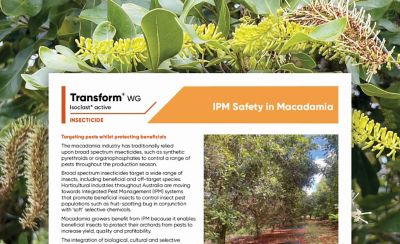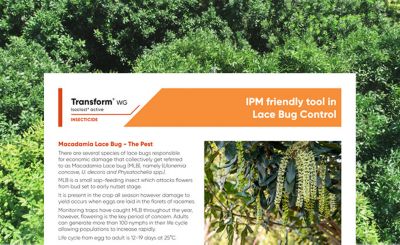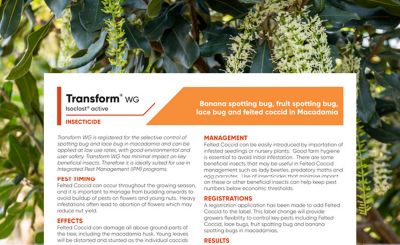Where the risk of aphid pressure is high, a seed treatment can be considered. Neonicotinoid based seed treatments can provide adequate protection early however, duration of control is dependent on seasonal conditions. In years where germination is delayed due to a late break the activity of these treatments may be reduced. In such cases, seed treatments can fail to provide adequate control up to the critical rosette growth stage. Vigilant crop monitoring will determine if or when a foliar insecticide application is warranted.
Sensitivity shifts to Transform have recently been found in a small number of GPA populations in Western Australia, showing the potential for low-level resistance evolution to this active ingredient. For now, Transform remains an effective foliar-applied insecticide for GPA control in Australia.
A sustainable long-term strategy for the control of GPA needs to be considered to manage the resistance risk by integrating selective chemical controls with practical cultural and biological controls. Where monitoring indicates that chemical intervention is required, A soft, selective product such as Transform WG Insecticide will provide effective control of GPA while having low impact on beneficial insects leaving them free to help control later season pest outbreaks such as Diamondback moth. Like all insecticides, Transform WG should be used only at the recommended label rates and according to the labelled resistance management strategy. Ensure spray applications achieve good coverage by using correct nozzles, high water volumes and appropriate ground speeds. Correct application will help prolong the useful life of this very important GPA / TuYV control option.




